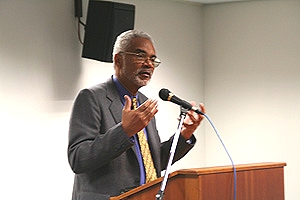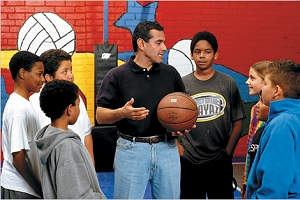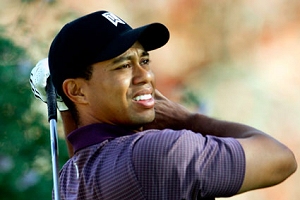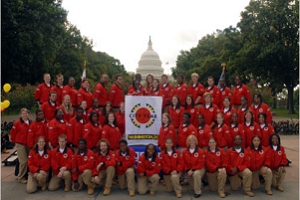America in context
The Legacies of Martin Luther King, Jr.

How relevant is Martin Luther King's vision in today's world of increasing ethnic and religious tension? A lecture-discussion by Dr. Clayborne Carson, professor of history and director of the King Institute at Stanford University. Brussels, November 20, 2007.
Excerpts
The Martin Luther King Jr. Institute has been concerned with the legacy of Martin Luther King. And one of the things we try to do is educate people about Martin Luther King [...]
We have tried to explain that Martin Luther King is not simply a great man who created a great movement. I do not believe in the great man theory of history. I think that it often overstates the importance of one single person. I don think I would be here today talking about Martin Luther King if not for Rosa Parks. Rosa Parks was the person who started the Montgomery Bus Boycott in 1955. And thats what allowed Martin Luther King to emerge as a leader. Otherwise, he would be a wonderful Baptist minister, but we would not be talking about him. So, I spend my life explaining that what I call the African-American freedom struggle is much larger than Martin Luther King. Martin Luther King is a symbol for that [...]...
So, instead of saying that we are simply involved in the Civil Rights struggle, he emphasized that the struggle was for universal principles of justice, and ultimately, the notion of global peace with social justice.
Now I think that explains why, when Civil Rights legislation was passed in the United States in 1964 and 1965, if Martin Luther King had simply been a Civil Rights leader, after the last legislation was passed in 1965, he would have retired and become a university professor, or perhaps a dean of religion at a university.
But instead, he remained in the struggle, intensified his activities, and that’s why he was in Memphis, Tennessee in 1968, working on behalf of garbage workers, and that’s when he was assassinated. He was also at that time very intently involved in the action to oppose the war in Vietnam.
So, explaining why Martin Luther King was in Memphis and was concerned about issues of war and peace on a global scale, leads me to understand the nature of his global vision. He believed that the African-American struggle was intricately related to the anti-colonial struggle.
So, Martin Luther King, throughout his life, understood that his role was not so much an organizer of a Civil Rights movement, but as a prophetic, visionary leader of a movement that had much wider implications, a wider vision, wider goals, broader goals than simply Civil Rights [...]
Recently on America in context
American Life, Diversity Explained, Point by Data Point
 America is changing in big ways. It's getting older, and it's getting more racially and ethnically diverse. The median age of the U.S. population is roughly 38 years old, up from 30 in 1980, and will continue to inch up as the large "baby boom generation" reaches retirement age.
America is changing in big ways. It's getting older, and it's getting more racially and ethnically diverse. The median age of the U.S. population is roughly 38 years old, up from 30 in 1980, and will continue to inch up as the large "baby boom generation" reaches retirement age.
Minority Groups Now One-Third of U.S. Population
 The United States Census Bureau announced in 2006 that as many as one-third of U.S. residents now claim "minority" heritage, reflecting the continuing evolution of an American national identity that transcends ethnic and religious boundaries.
The United States Census Bureau announced in 2006 that as many as one-third of U.S. residents now claim "minority" heritage, reflecting the continuing evolution of an American national identity that transcends ethnic and religious boundaries.
Volunteerism Is Integral Part of U.S. Culture
 University students represent a large and growing source of the nation's volunteers, according to the Corporation for National and Community Service, an independent federal agency that provides grants and other support to volunteer organizations throughout the country.
University students represent a large and growing source of the nation's volunteers, according to the Corporation for National and Community Service, an independent federal agency that provides grants and other support to volunteer organizations throughout the country.